Posted on December 28th, 2009 in AK Allies, Anarchist Publishers
Like all good avant-garde projects, Minor Compositions, the new theory-focused publishing project that grew out of the UK-based portion of the Autonomedia collective, just kind of appeared one day along with its debut release, Precarious Rhapsody, an unexpectedly fascinating series of reflections by the too-long-ignored (in the English-speaking world) Italian autonomist thinker and media activist Franco Berardi, better-known as Bifo. This was something of a cause for celebration in my household: the need for more of Bifo’s work to appear in English has been a topic of discussion around my house for a while, and Bifo was actually one one of the authors on my “priority list” of possible future projects that I created when I was first applying for the job at AK Press many months ago. And, it was doubly exciting to find out that I knew some of the folks behind this new and wonderful publishing initiative, dedicated to making more avant-garde approaches to everyday practice available for English-speaking readers, and that I could pump them for information on the project, the current books in production, and what they’ve got planned for the future.
Read on, and be sure to check out the Minor Compositions website. And, if you’re on the east coast, I strongly encourage you to check out one of the events that UK-based author Stevphen Shukaitis is doing for his new Minor Compositions book, Imaginal Machines. He’ll be at Red Emma’s in Baltimore on January 6, at the Wooden Shoe in Philly on January 7, and at Bluestockings in New York on January 8.
AK Press: Tell me a little bit about your new project, Minor Compositions—how did it come into being, and why?
 Minor Compositions: Minor Compositions is a research – theorizing – publishing project that is located, at the moment, within the London metropolitan basin of collective intelligence. Its main aim is to bring together, develop, and mutate forms of autonomist thought and practice, avant-garde aesthetics, and an everyday approach to politics. To take up a useful distinction made by Alan Toner, this is to see not from a position of ‘producer consciousness’ (“we’re a publisher, we make books”) but rather from a position of protagonist consciousness (“we make books because it is part of participating in social movement and struggle”). So the production of a text is not something that is thought in isolation but how it connects and develops moments of thinking collectively. This draws a good deal of inspiration from the autonomist notion of militant research and workers’ inquiry, expanding it beyond inquiry into particular bounded workplaces into a more general investigation of cultural labor, social reproduction, and the relationship between antagonistic energies and attempts to govern them.
Minor Compositions: Minor Compositions is a research – theorizing – publishing project that is located, at the moment, within the London metropolitan basin of collective intelligence. Its main aim is to bring together, develop, and mutate forms of autonomist thought and practice, avant-garde aesthetics, and an everyday approach to politics. To take up a useful distinction made by Alan Toner, this is to see not from a position of ‘producer consciousness’ (“we’re a publisher, we make books”) but rather from a position of protagonist consciousness (“we make books because it is part of participating in social movement and struggle”). So the production of a text is not something that is thought in isolation but how it connects and develops moments of thinking collectively. This draws a good deal of inspiration from the autonomist notion of militant research and workers’ inquiry, expanding it beyond inquiry into particular bounded workplaces into a more general investigation of cultural labor, social reproduction, and the relationship between antagonistic energies and attempts to govern them.
As for how and why it came into being, that is a bit like asking why the chicken crossed the road. It was there, which is to say that we saw some particular questions that could be usefully explored through such an approach. In the past ten years, or even longer (forty or fifty years) there has been increased interest in radical politics as cultural politics. Here one can see that the aspects of the anti-globalization movement that were focused on most were its cultural politics, the theatricality or the playfulness of demonstrations. Similarly, and very much connected to this, there has been a rise of interest in political art, or “activist art” within the museum and gallery world. It is problematic that this interest in art and politics often neglects questions of political economy. Cultural politics becomes substituted for all forms of politics. But to raise the specter of political economy is not a call to return to some sort of reductive Marxism that sees cultural struggles as adjuncts to the “real struggles” around labor. And it’s through the autonomist notion of class composition, looking at the relation between the building of social movement potential to radically transform the world and the continual effort to turn these energies into new modes of capitalist production and governance, that this question can be opened and re-thought in a different, and hopefully more useful manner.
AK: And it’s an imprint of Autonomedia, is that right? Or a separate project?
MC: Spinoza tells us there is only one substance, namely god or nature. From this we can logically conclude that Autonomedia and Minor Compositions are indeed part of a unified fabric of being, along with puppy dogs, your mother’s pool cue, and the entirety of the 1986 Mets. That, however, does not adequately describe the particular relation between different modes of becoming involved. The evaluation of compositional modes is one of history and time, which of course do not exist. It is as when Rimbaud says that “I is an other”: Minor Compositions is both a part of Autonomedia and a becoming-other compositional mixture of Autonomedia that is not totally of it, that is the other to the self that is Autonomedia.
AK: Wasn’t that just a bunch of gobbledlygook? What do you mean that by that? How does it practically work?
MC: Perhaps. How does it work? Simply, by breaking down, like all forms of desiring machines. But that’s probably not what you mean. So let’s say more practically that within the realm of autonomous media production there are zones of autonomy within the larger framework of imaginal production. These are points and processes of conjunction where Autonomedia is less a centralized location, but rather where different forces collaborate in ways that would not be possible without that framework. And if you look over the history of what Autonomedia has published you will see these kinds of collaborations and joint projects taking place under the proper name “umbrella” of Autonomedia, from joint projects during the 90s with Black & Red, Anarchy: A Journal of Desire Armed, and the Info.Interactivist project (coordinated with Interactivist and ABC No Rio). More recent joint projects include the collaborations that led to the DATA Browser series, the Shut Them Down! book with the Dissent! Network, and the Proud to Be Flesh anthology that compiles the best of Mute Magazine. This is part of the shift from publisher as producer to publisher as assemblage, as one node in a larger process of composition.
(more…)
Posted on December 25th, 2009 in AK Distribution
I don’t celebrate Christmas anymore. I no longer give, and hardly receive, any gifts during the holidays. Frankly, I’m still somewhat confounded by the fact that so many self-proclaimed radicals, anarchists, leftists, anti-capitalists, etc. that I know fall so deeply into full participation with this consumer entrapment sham of a holiday year after year after year—but then, we all have our contradictions, don’t we?
Say I did celebrate Christmas, though? My idea of the perfect gift is something that is actually useful and something that the recipient would never think of getting for themselves. If I were buying presents for the women in my life this year, I’d probably consider getting each of them The Rapex, an anti-rape device that is literally a condom with teeth. Maybe. Or maybe I’d just go the route of switchblade stocking-stuffers, because you never know when you’re going to have to temporarily debilitate someone in order to give yourself time to escape to relative safety.
Beyond the holiday musings of an angry anti-statist Brown girl, I swear I am going somewhere with this…
I wanted to share with you this statement that I wrote, as part of a collaborative effort, in response to the slayings of two young queer people of color back in late November. Yes, I am aware that blogging about a news story that happened over a month ago can be considered dated when it comes to the blogosphere, but I am sharing it with you because of its cruel and bitter relevance to those frequent moments where hate-filled violence is inflicted upon marginalized bodies—and yes, I do take these moments personally, even when they do not occur against my particular body. A switch of names and a slight tweaking of details and this statement could’ve been used to address the recent murders of Mariah Qualls or Walter Tróchez or any of the many people who’ve fallen, and sadly will continue to fall, as a result of gendered and sexualized violence.
 So while my personal considerations for being the Santa Claus that delivers switchblades and condoms with teeth for Christmas are made in jest, the sentiment behind these gifts is a conversation that all of us need to be taking seriously. For all my tough-as-nails mujeres and queer comrades, I want you to consider how to combat gendered and sexualized violence before it happens, in the moment, and after the fact, both as individuals and as community. And for those of you who would consider committing an act of violence toward one of our brothers and sisters, just know that the person you are attacking might stick you in the side before the fight is over, courtesy of the bearded woman in the red suit handing out switchblades.
So while my personal considerations for being the Santa Claus that delivers switchblades and condoms with teeth for Christmas are made in jest, the sentiment behind these gifts is a conversation that all of us need to be taking seriously. For all my tough-as-nails mujeres and queer comrades, I want you to consider how to combat gendered and sexualized violence before it happens, in the moment, and after the fact, both as individuals and as community. And for those of you who would consider committing an act of violence toward one of our brothers and sisters, just know that the person you are attacking might stick you in the side before the fight is over, courtesy of the bearded woman in the red suit handing out switchblades.
********
All,
On Sunday, November 21, 2009, we stand together to mourn the loss of two young queer people of color, 19-year-old Jorge Steven Lopez-Mercado of Puerto Rico and 15-year-old Jason Mattison Jr. of Baltimore, who were violently taken from this earth within a few days of each other. Our collective heart goes out to the friends and family of these young people. Please know that we were deeply impacted upon hearing the news of these violent and tragic losses and that the reaction for many of us was that of having lost one of our own friends or family members.
 As a group of unaffiliated, but growing community of queer people of color and allies based out of Oakland, California, we are sadly all too familiar with the type of violence that was inflicted upon these two young bodies. We ourselves are also various combinations of queer and trans and poor and colored and young and many of the other things that singled out Jorge and Jason as vulnerable and dispensable targets. And because we dare not only to survive in this world as all of these things, but also to thrive as and accentuate these identities, we also become potential targets of this type of transphobic/homophobic violence. So today, on this day, we stand together not only to mourn the loss of Jorge and Jason, but we also stand in solidarity with communities in Puerto Rico, Baltimore, and other parts of the world who are every day resisting the type of hateful violence that ripped away young Jorge and Jason from their loved ones. Although our hearts are heavy and our souls full of grief, our spirit is not broken and we must continue to move forward, as our ancestors and elders have done before us and as our young people and descendents will continue to do long after we are gone.
As a group of unaffiliated, but growing community of queer people of color and allies based out of Oakland, California, we are sadly all too familiar with the type of violence that was inflicted upon these two young bodies. We ourselves are also various combinations of queer and trans and poor and colored and young and many of the other things that singled out Jorge and Jason as vulnerable and dispensable targets. And because we dare not only to survive in this world as all of these things, but also to thrive as and accentuate these identities, we also become potential targets of this type of transphobic/homophobic violence. So today, on this day, we stand together not only to mourn the loss of Jorge and Jason, but we also stand in solidarity with communities in Puerto Rico, Baltimore, and other parts of the world who are every day resisting the type of hateful violence that ripped away young Jorge and Jason from their loved ones. Although our hearts are heavy and our souls full of grief, our spirit is not broken and we must continue to move forward, as our ancestors and elders have done before us and as our young people and descendents will continue to do long after we are gone.
But what does moving forward look like from our vantage point? How exactly do we recover ourselves from this tragic loss to find healing, support, and understanding? How do we organize ourselves and take action to gather the sense that justice has been served? Moreover, we ask ourselves, what exactly does justice look like in this situation? We know that there are many of you who are seeking justice for these lost lives within the framework of the current criminal justice system and that, in Puerto Rico, you are working to have Jorge’s murder prosecuted as a hate crime. But here in Oakland, a city that is everyday terrorized by an increasingly militarized police presence, particularly in low-income neighborhoods of color, we need to take a step back to look at the monster at hand and ask ourselves: does increased policing, legislation, and imprisonment feel like justice?
Yes, of course, we full-heartedly denounce the brutal acts committed against Jorge and Jason. There is no doubt in our minds that the perpetrators of this violence need to be dealt with in a way that will assure us that even the thought of committing a violence so gruesome never crosses their minds ever again. However, we also denounce the so-called criminal justice system, its racist, classist origins, and its continuing legacy of terrorizing communities and individuals who are already marginalized and exploited. We understand the criminal justice system and all of its tentacles as yet another tool of this racist, classist, transphobic, homophobic, misogynistic system of governance that we are currently forced to exist under.
And so we come back to the question, what does justice look like in this situation? Jorge and Jason are dead. They are never coming back, no matter how many prisons we build, no matter how many police patrol our streets, these young people are gone and we denied of their smiles, laughter, tears, and overall brilliance—and believe us, the pain of this realization is not lost on us, as we feel its heavy pull quite deeply.
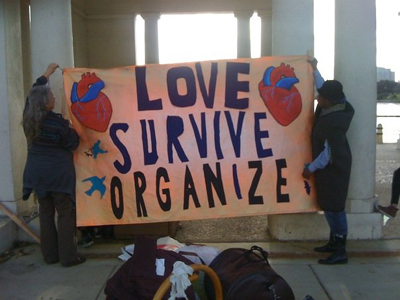 We come back to the question of justice not because we here in Oakland have devised some ultra sophisticated, fool-proof method for obtaining justice when violent crimes are committed against us, but because it is a question that we are also struggling to answer ourselves. One thing we do know for sure, we feel that we cannot, nor were we ever meant to, rely on the criminal justice system to keep us safe, especially given the reality that it is this same system that is invested in feeding the hateful attitudes that lead to the murders of Jorge and Jason in the first place.
We come back to the question of justice not because we here in Oakland have devised some ultra sophisticated, fool-proof method for obtaining justice when violent crimes are committed against us, but because it is a question that we are also struggling to answer ourselves. One thing we do know for sure, we feel that we cannot, nor were we ever meant to, rely on the criminal justice system to keep us safe, especially given the reality that it is this same system that is invested in feeding the hateful attitudes that lead to the murders of Jorge and Jason in the first place.
Today, as we stand together in honor of Jorge and Jason and the countless others that we have lost due to homophobic, transphobic, and many other types of systemic violence, we want all of you who could not physically stand here with us to know that our pain runs deep and our anger runs rampant, and that because we wish to no longer be afflicted by the pain or anger that is caused when confronted with a violent loss, we are fully committed to seeking out models of justice that serve the purpose of community health and self-determination. We will not rely on police, judges, or prison cells to keep us safe, but rather we look toward each other, day in and day out, to find the strength, hope, and inspiration to continue moving forward together, across borders and distance.
In struggle and solidarity.
Posted on December 23rd, 2009 in AK Distribution, Happenings
With the holiday season thankfully nearing its close, another night of cheap books, good beer, good company and a variety of free vegan snacks has come and gone. I’m recapping for you, of course, the 2009 AK Press Holiday Sale.
We decked out the common space of the AK warehouse in cheerful holiday lights to set the mood (ok, and also because the common space is usually totally dark). We set out our tables and tables’ worth of sale books (really there were tons!), and hung up all our cheap shirts in the most attractive fashion imaginable…
 |
(Irresistible, am I right?) |
Suzanne made two huge platters of her famous semi-annual finger sandwiches…
I set out a tray of chocolate raspberry mini-cupcakes…
And our friend Dan, as always, tapped the keg and brought the holiday jams.
(As you can see, our holiday tunes err on the nontraditional side. More so now that, sometime between last year’s sale and this one, we experienced the unfortunate loss of one of our old favorites: A Christmas Together: John Denver & the Muppets.)
Everyone loves the holiday sale because not only do we get to get to hang out with tons of great folks we only see a couple times a year, meet new people we’ll now see a couple times a year, and stuff ourselves until the last remnants of the vegan “cheese ball” have been obliterated—we ALSO get to show off our newest and greatest offers and releases!
Who could resist joining the ranks of the Friends of AK with all that swag staring them in the face? Not to mention the gift ideas and our Nabat Series, Working Classics Series, and Seth Tobocman snack packs.
At any rate, we at AK always look forward to our twice yearly sales, and know that a lot of you do, too. We love to see your smiling faces and armfuls of books on a semi-annual basis! But don’t feel bad if you’re not local to the Bay Area—you know we’re happy to ship off to you any item your heart desires. Except the beer, I mean. Or the finger sandwiches. Really just stuff in our catalog. But that includes a lot of seriously worthwhile items. Yes, even sale items.
Posted on December 18th, 2009 in AK Allies, AK Distribution, Recommended Reading
 We are happy to announce another new book from Black Cat Press. Anarcho-syndicalism in the 20th Century, translated by Malcolm Archibald, is now in stock. It’s heartening to see Vadim Damier’s book available to English-language readers. Recent titles, especially those utilizing so many archival sources, are expanding our understanding of the global anarchist movement.
We are happy to announce another new book from Black Cat Press. Anarcho-syndicalism in the 20th Century, translated by Malcolm Archibald, is now in stock. It’s heartening to see Vadim Damier’s book available to English-language readers. Recent titles, especially those utilizing so many archival sources, are expanding our understanding of the global anarchist movement.
We welcome the opportunity to reflect on the recent history of a movement that is often dubbed moribund, outmoded, or otherwise useless. What’s perhaps strangest about the blanket rejection of the syndicalist tradition is that it is often done with such ignorance. Hopefully resources like this one by Damier will change the perceptions of some contemporary anarchists toward the anarcho-syndicalist legacy. Although, more importantly, may the book embolden those drawing lessons from the global anarchist tradition to apply them in the here and now, under present circumstances.
Here’s an excerpt (and a photo of Vadim):
 Preface
Preface
Anarcho-syndicalism is a fundamental tendency in the global workers’ movement. It is made up of revolutionary unions of workers (“syndicat” in French means “trade union”), acting to bring about a stateless (anarchist), self-managed society.
Anarcho-syndicalism, the only mass variant of the anarchist movement in history, arose and acquired strength during a period of profound social, economic, and political changes—the first decades of the 20th century. In the countries which formed the “centre” of the global industrial-capitalist system, a transition to a developed industrial society was taking place, while on the “periphery” and “semi-periphery” the process of industrialization was still only getting started. The furious pace of social change often caused much suffering for the workers, forcing them to abandon traditional occupations and forms of life and pushing them into factories, frequently under onerous conditions. Former agricultural labourers were uprooted from their accustomed mode of life—conditioned by centuries—while skilled craftsmen experienced anguish when they were forced into narrowly specialized or unskilled work. The workers’ consciousness was scarred by the growing alienation and atomization of the human personality under the conditions of the rise of “mass society.”
The workers’ movement arose, to a significant extent, as an alternative force in relation to the industrial-capitalist system. As the Italian sociologist Marco Revelli has noted, “the modern State from the very beginning counterposed these two forces to each other, as opposing tendencies.” Of course, this opposition could be regarded in different ways, either more radically (as in the case of the English Luddites who resisted the introduction of the factory system), or less radically (in the form of workers’ mutual aid societies, taking upon themselves control of the social sphere). But almost always this “early” workers’ movement was based on the spirit of independence, communal life, and collectivism preserved from the pre-industrial era of artisan workshops, in opposition to factory despotism. The division of labour had still not reached the level of Taylorist fragmentation. Skilled workers, with a good understanding of their own work and where it fit in the production process, were quite capable of thinking they could control production on their own. On the other hand, the State mechanisms of social integration had not yet achieved sufficient development; rather the social sphere was almost completely controlled by the institutions and organizations of the workers’ movement (associations, syndicates, bourses de travail, etc.), which frequently were regarded as the basis for a possible self-managed alternative.
In the social realities of those times there was undeniably a place for radical tendencies which to some degree aimed at the dismantling, elimination, or radical transformation of the industrial-capitalist system. Although the majority of revolutionary syndicalists and anarchists were by no means immune from certain myths and concepts about the progressiveness of industrialism, still their social goals on the whole were oriented to a rupture with the system and its replacement with a new social structure based on self-management and decision-making by means of agreements arrived at “from the bottom up.” Such views were compatible in many respects with the desires of the working masses in that epoch.
It is impossible to regard anarcho-syndicalism as some kind of insignificant, marginal phenomenon—as the extravagant escapades of “extremist grouplets” or the fantasies of salon intellectuals. This is a global movement which spread to countries as different as Spain and Russia, France and Japan, Argentina and Sweden, Italy and China, Portugal and Germany. It possesses strong, healthy social roots and traditions, and was able to attract hundreds of thousands, indeed millions, of wage workers. Anarcho-syndicalists not only took an active part in the most important social upheavals and conflicts of the 20th century, often leaving their own indelible imprint on these events, but also in many countries they formed the centre of a special, inimitable, working class culture with its own values, norms, customs, and symbols. The ideas and traditions of anarcho-syndicalism, and the slogans it put forth about workplace and territorial self-management, exerted an influence on many other social movements, including the workers’ councils of Budapest (1956), the student and youth uprisings of 1968, Polish “Solidarity” in 1980–81, the Argentine “popular assemblies,” etc.
Without knowing the history of anarcho-syndicalism, it is impossible to gain a reliable understanding of the history of many countries of the world; it is impossible to grasp in its fullness the course of development and destiny of humanity throughout the last 120 years…
V. Damier
TABLE OF Contents
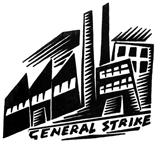 PART ONE Revolutionary Syndicalism
PART ONE Revolutionary Syndicalism
From the First International to Revolutionary-Syndicalism
The Rise of the Revolutionary-Syndicalist Movement
Revolutionary-Syndicalism and Anarchism
Revolutionary-Syndicalism during the First World War
PART TWO Anarcho-syndicalism
The Revolutionary Years
From Revolutionary-Syndicalism to Anarcho-syndicalism
The World Anarcho-syndicalist Movement in the 1920’s and 1930’s
Ideological-Theoretical Discussions in Anarcho-syndicalism in the 1920’s and 1930’s
PART THREE The Spanish Revolution
The Uprising of July 19 1936
Libertarian Communism or Antifascist Unity?
Under the Weight of Circumstances
The CNT Enters the Government
The CNT in Government: Results and Lessons
Notwithstanding “Circumstances”
The Spanish Revolution and World Anarcho-syndicalism
PART FOUR Decline and Possible Regeneration
Anarcho-syndicalism During the Second World War
Anarcho-syndicalism After World War II
Anarcho-syndicalism in Russia in the Current Epoch
Bibliographic Essay
Acronyms
Index
Posted on December 16th, 2009 in AK Book Excerpts
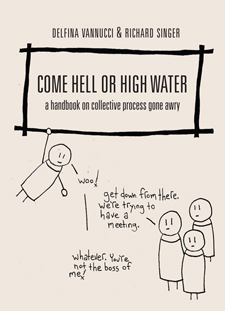 Hi folks! Those of you who’ve scoured the latest AK Press 2010 catalogue already know that one of the exciting new titles AK Press is releasing this season is a desperately-needed guide to collective process, Come Hell or High Water: A Handbook on Collective Process Gone Awry, by Delfina Vannucci and Richard Singer. We’re really excited about this one! As folks who have invested a great deal of time and energy in a collectively-run business, we’re constantly thinking about questions of collectivity and questions of process and structure, and it never ceases to amaze us how many times issues of process, or gaps in our collective process, come back to bite us in the ass, usually when we least expect it. Like everyone who works in collective settings, our goal is always to resolve potential problems before they become problems … which is why we’re constantly rethinking and evolving the sets of best practices that we use to manage our business, and guide our interactions with each other. But sometimes you just miss things, and situations that seem entirely innocuous upon first glance can turn into major sources of collective strife further down the road. And that’s where Richard and Delfina come in. Their book isn’t a guide to starting a collective (though that’s another long-overdue topic for a good short book!); instead, it’s a handbook for folks who are already familiar with the ways collectives work, and a set of strategies that folks can apply to their own real-world collective settings to get derailed processes back on track. If you’ve worked in a collective, you’ll recognize the situations they describe. You may even see shadows of yourself in some of the inadvertent transgressions they describe—a slightly uncomfortable, but ultimately productive experience!
Hi folks! Those of you who’ve scoured the latest AK Press 2010 catalogue already know that one of the exciting new titles AK Press is releasing this season is a desperately-needed guide to collective process, Come Hell or High Water: A Handbook on Collective Process Gone Awry, by Delfina Vannucci and Richard Singer. We’re really excited about this one! As folks who have invested a great deal of time and energy in a collectively-run business, we’re constantly thinking about questions of collectivity and questions of process and structure, and it never ceases to amaze us how many times issues of process, or gaps in our collective process, come back to bite us in the ass, usually when we least expect it. Like everyone who works in collective settings, our goal is always to resolve potential problems before they become problems … which is why we’re constantly rethinking and evolving the sets of best practices that we use to manage our business, and guide our interactions with each other. But sometimes you just miss things, and situations that seem entirely innocuous upon first glance can turn into major sources of collective strife further down the road. And that’s where Richard and Delfina come in. Their book isn’t a guide to starting a collective (though that’s another long-overdue topic for a good short book!); instead, it’s a handbook for folks who are already familiar with the ways collectives work, and a set of strategies that folks can apply to their own real-world collective settings to get derailed processes back on track. If you’ve worked in a collective, you’ll recognize the situations they describe. You may even see shadows of yourself in some of the inadvertent transgressions they describe—a slightly uncomfortable, but ultimately productive experience!
The book is set to release in January 2010, so preorder your copy today and receive it hot off the presses! And, for groups, organizations, and other collectively-minded businesses, we’re offering a special 50% wholesale rate if you order 10 or more copies (non-returnable), since we suspect folks may want to make the book available to everyone in their collectives and communities as a resource. Just email orders@akpress.org if you’re interested in getting the special wholesale rate for bulk orders.
And, lest you worry about getting bogged down in the depressing—but realistic—failures of collective process, let me sweeten the deal for you: the book’s illustrated with comics courtesy of the ever-incorrigible Strangers in a Tangled Wilderness crew, who’ve sustained us through good times and bad with their timely interventions into anarchist politics in stick-figure form!
Below you’ll find an excerpt from Delfina & Richard’s introduction to the book. We hope this gives you a good sense of what’s in store in Come Hell or High Water, and encourages you to buy the book and start building better processes!
*****
Excerpt from the Introduction to Richard Singer & Delfina Vannucci’s
Come Hell or High Water: A Handbook on Collective Process Gone Awry
Introduction
Being part of an egalitarian collective can be a powerful and liberating experience. Most of us, throughout our lives, have been in groups in the broader society—whether in the workplace, school, or other organizations—in which hierarchies of authority, power, and knowledge are paramount. Each of us is expected either to submit—most of the time—or to lead, if one has made one’s arduous way to the top. Joining a collective, on the other hand, allows an individual to pursue her goals within a common framework, and to help shape that framework with her own contributions. Members are in charge of themselves and one another, without coercion or enforced obedience, and they work cooperatively.
A collective is simply a group of people who come together to work toward a common goal, like creating art or music, organizing around political causes, providing services to a community, or pursuing any objective that the group’s members choose as their focus. Collectives are often made up of volunteers, but they can also form the organizational structure of businesses. Because a collective is made up of individuals whose interests will vary, and vary over time, and because the membership itself will usually change over time, collectives tend to be organic: the group’s activities and goals depend on the composition of the group at a particular time. But the main thing that distinguishes a collective from other organizations is that everyone in the group is considered an equal. There are no authority figures and there’s no hierarchy. Decisions are made collectively by the entire group, whether by consensus (which means that everyone in the group has to, ideally, consent to all decisions) or by voting (whether it’s a majority vote, a two-thirds vote, etc.).
The notion that there must be leaders and followers is so ingrained in our culture that some might think that egalitarianism just can’t work. But there are lots of examples of egalitarian collectives, some that have been around for decades. Food Not Bombs, for instance, has been serving free meals to all takers and to support political actions since the early 80s. It is now is made up of hundreds of autonomous collectives all around the world. The famous punk rock club 924 Gilman Street, in Berkeley, is a collective that has been going strong for over 20 years. (Punk subculture can sometimes be a good model for collectives, but not always—a point we’ll get back to in a later chapter.) The publisher of this book, AK Press, is an example of a collectively run business. And although a collective is typically made up of more than two people, this book was written collectively, with both authors having an equal say.
In an egalitarian collective, everyone is valued, and everyone gets a say without having to worry about being overruled or ordered to conform to someone else’s wishes. It’s a heady ideal. At its best, it stands as a model for a more just and inclusive structure for working and existing together. But equality and fair dealing don’t just flow automatically out of good intentions. Egalitarianism requires commitment and mindfulness from everyone involved. It demands clarity and the willingness to work at it, which sometimes includes hashing out conflicts and working out solutions to tough problems. When the ideal of egalitarianism is allowed to flounder, unattended to, it can devolve right back into the patterns that most of us knew in our lives outside of collectives: hierarchy, mistrust, looking out only for oneself, and sometimes even underhanded scheming.
While every collective is unique, because it’s made up of unique human beings, there are some common problems, as well as common strengths, that we have seen over time. And in our view, they form predictable patterns.
The purpose of this book is to clarify some of the problems that can come up in groups that strive for equality and openness. It’s not meant as a complete manual for how to work in egalitarian groups, nor is it an introduction to the consensus process. (For people seeking thorough texts on those subjects, we recommend the books Building United Judgment: A Handbook for Consensus Decision Making, by the Center for Conflict Resolution, ed., and On Conflict & Consensus: A Handbook on Formal Consensus Decisionmaking, by C.T. Lawrence Butler and Amy Rothstein.) Nonetheless, we hope that these pages will be of some use to any group that chooses to function according to the principles of cooperation and egalitarianism.
Are you hooked? Just wait until you see what comes next! Pre-order a copy today and get 20% off the cover price (an already modest $10!)
Posted on December 14th, 2009 in AK Authors!
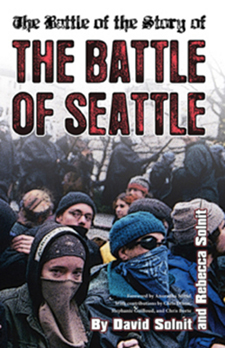 This happened a couple of weeks ago (on November 30, in fact: for the anniversary of 1999’s anti-WTO events in Seattle). But, in case you happened to miss it, below is a video of David Solnit’s appearance on Democracy Now!
This happened a couple of weeks ago (on November 30, in fact: for the anniversary of 1999’s anti-WTO events in Seattle). But, in case you happened to miss it, below is a video of David Solnit’s appearance on Democracy Now!
Along with his sister Rebecca Solnit, David edited the recent AK release: The Battle of the Story of the Battle of Seattle. Watch David discuss the book, and the legacy of Seattle…and then buy the book here.
Posted on December 11th, 2009 in AK Distribution, Anarchist Publishers, Recommended Reading
 Black Cat Press, Canada’s foremost anarchist publisher, has had a busy year. We’ve recently received a whole new batch of books from them. Featured here is the much-anticipated second volume of Makhno’s memoirs, Under the Blows of the Counterrevolution (April–June 1918). (The first volume can be found here.) This is a first English translation of the 1936 Russian edition. Malcolm Archibald completed the translation, which includes the introduction and notes from its original editor, Voline. As well, Black Cat have been kind enough to include a glossary, three-part appendix, chronology, and index.
Black Cat Press, Canada’s foremost anarchist publisher, has had a busy year. We’ve recently received a whole new batch of books from them. Featured here is the much-anticipated second volume of Makhno’s memoirs, Under the Blows of the Counterrevolution (April–June 1918). (The first volume can be found here.) This is a first English translation of the 1936 Russian edition. Malcolm Archibald completed the translation, which includes the introduction and notes from its original editor, Voline. As well, Black Cat have been kind enough to include a glossary, three-part appendix, chronology, and index.
Memoirs offer an exciting, if highly subjective, viewpoint—and Makhno’s are no exception. So enjoy the Russian Revolution from his up close and personal perspective.
Readers of this blog certainly constitute a core audience for Black Cat’s efforts. Please consider supporting these efforts by purchasing their books and lobbying your local library to pick them up. Our support will help bring these and many more interesting projects to light.
Without further ado, here’s an excerpt from Chapter 6, “En Route with the Echelon of the Red Artillery Base”:
Because of the traffic jam on the railway line caused by the movement of refugees, we took about 48 hours to travel from Rostov to Tikhoretskayaya. Since we hadn’t stocked up on bread and other foodstuffs, in Tikhoretskayaya the commander of the echelon sent our comrades to the bazaar to buy food, counting on the recently promulgated law according to which each Red Guard detachment was entitled to acquire food from vendors either without paying anything or paying only one-third of the regular price.
The comrades went, dragging me along with them. They had a list of food to buy which would be sufficient to get us to the city of Tsaritsyn, which we expected to reach in about a week.
 The vendors loaded the goods on wagons, but when it came time to settle up and they saw that their goods were being requisitioned, they complained bitterly. Their protest relied on the insecurity of the Bolshevik-Left SR government in this region. At the time there were hundreds of White Guard units operating in the area and the population silently supported them. Reacting to this protest of the vendors, the Red authorities panicked. They ordered the Tikhoretskayaya garrison to cordon off the echelon of the artillery base and not allow it to continue on its way without special authorization.
The vendors loaded the goods on wagons, but when it came time to settle up and they saw that their goods were being requisitioned, they complained bitterly. Their protest relied on the insecurity of the Bolshevik-Left SR government in this region. At the time there were hundreds of White Guard units operating in the area and the population silently supported them. Reacting to this protest of the vendors, the Red authorities panicked. They ordered the Tikhoretskayaya garrison to cordon off the echelon of the artillery base and not allow it to continue on its way without special authorization.
When the echelon had been cordoned off by loyal troops (who, it was evident, were not eating their own rations, or even requisitioning food, but simply grabbing stuff from various vendors), the Tikihoretskaya “revolutionary” government ordered the command of the echelon of the artillery base to send two people to explain the attempt to requisition essential goods.
Commander Pashechnikov prevailed upon me and Comrade Vasilyev (of the Yuzovsk Anarchist organization) to answer the summons of the Tikhoretskayaya authorities and try to reason with them.
We went, and the authorities arrested us and politely informed us that we were subject to being shot under martial law.
At first I thought the representative of the government was joking, and replied:
“It’s nice that we’re being shot under martial law, instead of the normal way…”
But then I saw they weren’t joking. They assigned two armed Cossacks to guard us, and these dunderheads, without standing on ceremony, began to discuss out loud how well dressed we were and that their only regret was that my clothes would be too small for them.
Comrade Vasilyev said to me:
“We must demand to see the chairman of the Revkom. For quite possibly it was reported to him that two robbers from some kind of echelon were being held, and he responded: ‘Shoot them’. Then protests wouldn’t be of any use. They would finish us off right away…”
So we demanded to see the chairman of the Revkom. But their response was to accuse us of being counterrevolutionaries. The ruckus we raised with our arguing with the guards drew the attention of a “revolutionary” petty official, who yelled at us and at the guards. The latter, in order to vindicate themselves, beat on us with their rifle butts. This riled me so much I smacked one of the guards and began yelling in a loud voice: “Get the comrade chairman of the Revkom. I want to tell him that he’s got a bunch of thugs here who are using the banner of the Revolution as a cover to carry on their own rotten, counterrevolutionary activities…”
My yelling and cursing was heard in all the rooms of the Revkom, and many representatives of the government came running. However, none of them helped us. We kept raising a row for about an hour and were so obnoxious that our guards finally left the room and closed the door.
(more…)
Posted on December 9th, 2009 in AK Distribution
Well, folks, we’re finally recovered from our big sale (and there’s another post on that forthcoming, I’m led to believe…) but the holiday season is just kicking into gear. It’s been a busy week around the warehouse, but believe me, that’s not a complaint—we sincerely wish things could be this hectic all the time.
So, Charles warned you that there’d likely be a few shameless holiday-related posts to remind you that if you are planning to buy any gifts this year, you might as well support AK at the same time! And here’s my contribution to the madness. Instead of doing a “Top Ten New Distro Items” post this month, I’m going to give you the “Top Ten Giftable Items” (or more like genres of items, just cause I have to be difficult like that). If you happen to be a member of my family, some of these may look familiar from past holidays, but rest assured that I picked those gifts out just for you because you are special and now I am only sharing them with everyone else because you loved them so much!
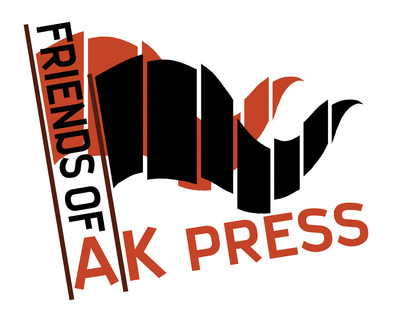 So, everyone, as you’re mulling over these ideas and plotting your grand strategies, please take note of the holiday ordering guidelines that our mailorder superstar Victoria has graciously posted. And even though they’re not on today’s list (because they’ve recently had their own moments in the blog-spotlight), don’t forget about Friends of AK Press, our new 2010 calendars, our kids’ books, and our excellent selection of sale items.
So, everyone, as you’re mulling over these ideas and plotting your grand strategies, please take note of the holiday ordering guidelines that our mailorder superstar Victoria has graciously posted. And even though they’re not on today’s list (because they’ve recently had their own moments in the blog-spotlight), don’t forget about Friends of AK Press, our new 2010 calendars, our kids’ books, and our excellent selection of sale items.
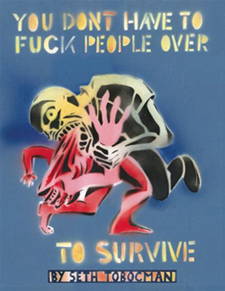 1. Nothing says “I care” like an AK Press Snack Pack! We’re now offering complete (discounted) sets of our popular Nabat Books and Working Classics Series. And we’re also putting together a new package deal every month—December’s is the Seth Tobocman Snack Pack, in celebration of the long-awaited release of You Don’t Have to Fuck People Over To Survive. And stay tuned after the holidays because we’ve been brainstorming a lot of pretty excellent (and hilarious) topics for future snack packs—as a matter of fact, this is quite often what happens in the warehouse when we reach the point in a long workday when our brains stop working.
1. Nothing says “I care” like an AK Press Snack Pack! We’re now offering complete (discounted) sets of our popular Nabat Books and Working Classics Series. And we’re also putting together a new package deal every month—December’s is the Seth Tobocman Snack Pack, in celebration of the long-awaited release of You Don’t Have to Fuck People Over To Survive. And stay tuned after the holidays because we’ve been brainstorming a lot of pretty excellent (and hilarious) topics for future snack packs—as a matter of fact, this is quite often what happens in the warehouse when we reach the point in a long workday when our brains stop working.
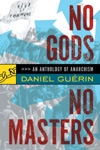 2. For the anarchists in your life, how about the single-volume No Gods No Masters? Or the first volumes of Makhno’s memoirs (here and here)? Or perhaps the two-volume documentary history of Emma Goldman or her autobiography, Living My Life?
2. For the anarchists in your life, how about the single-volume No Gods No Masters? Or the first volumes of Makhno’s memoirs (here and here)? Or perhaps the two-volume documentary history of Emma Goldman or her autobiography, Living My Life?
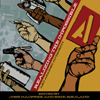 3. Personally, I like to use gift-giving holidays as an excuse to stock up on art books, and I assume this is at least somewhat of a universal impulse (am I wrong?). So if that’s your thing, I can personally vouch for Realizing the Impossible and also Visions of Peace & Justice, which are two of my favorites that we carry. For you Banksy fanatics, check out Banksy’s Bristol, which came out from Last Gasp just this year.
3. Personally, I like to use gift-giving holidays as an excuse to stock up on art books, and I assume this is at least somewhat of a universal impulse (am I wrong?). So if that’s your thing, I can personally vouch for Realizing the Impossible and also Visions of Peace & Justice, which are two of my favorites that we carry. For you Banksy fanatics, check out Banksy’s Bristol, which came out from Last Gasp just this year.
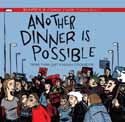 4. It’s hard to go wrong with cookbooks. We, of course, specialize in the vegan variety—but the recipes are delicious enough that they’ll appeal to omnivores too. Try Veganomicon, which is the all-purpose vegan reference cookbook by Isa Chandra Moskowitz and Terry Hope Romero, or else check out their brand new Vegan Cookies Invade Your Cookie Jar. And of course we have to plug our own recent release, Another Dinner Is Possible!
4. It’s hard to go wrong with cookbooks. We, of course, specialize in the vegan variety—but the recipes are delicious enough that they’ll appeal to omnivores too. Try Veganomicon, which is the all-purpose vegan reference cookbook by Isa Chandra Moskowitz and Terry Hope Romero, or else check out their brand new Vegan Cookies Invade Your Cookie Jar. And of course we have to plug our own recent release, Another Dinner Is Possible!
 5. Maybe the handyperson in your life could use some help with their household projects? South End Press’s Toolbox for Sustainable City Living was one of last year’s holiday bestsellers, and along similar lines is Process Media’s The Urban Homestead. Or get a head start planning your spring with Food Not Lawns.
5. Maybe the handyperson in your life could use some help with their household projects? South End Press’s Toolbox for Sustainable City Living was one of last year’s holiday bestsellers, and along similar lines is Process Media’s The Urban Homestead. Or get a head start planning your spring with Food Not Lawns.
 6. Over the years AK Press has put out quite a few excellent audio and video releases, and for an especially great gift, look at our CD and DVD box sets! We’ve collected four Howard Zinn lectures into the six-disc People’s History Project box set. The four-DVD set What We Want, What We Believe is an unmatched collection of video on the Black Panther Party. Or for the folk music fan, we have an excellent collection of (and tribute to) the work of Utah Phillips, Starlight on the Rails.
6. Over the years AK Press has put out quite a few excellent audio and video releases, and for an especially great gift, look at our CD and DVD box sets! We’ve collected four Howard Zinn lectures into the six-disc People’s History Project box set. The four-DVD set What We Want, What We Believe is an unmatched collection of video on the Black Panther Party. Or for the folk music fan, we have an excellent collection of (and tribute to) the work of Utah Phillips, Starlight on the Rails.
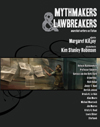 7. We’re mostly known for nonfiction, sure, but we’re working on expanding our literary offerings too! So how about a novel or a book of short stories? We just got in Sherman Alexie’s new book, War Dances. Or perhaps Terry Bisson’s Fire on the Mountain, which PM Press just rereleased to coincide with the 150th anniversary of John Brown’s raid on Harper’s Ferry. Fiction enthusiasts might also be interested in Mythmakers & Lawbreakers, our new book on anarchist fiction! And if fiction doesn’t float your boat, we’ve even got some poetry…
7. We’re mostly known for nonfiction, sure, but we’re working on expanding our literary offerings too! So how about a novel or a book of short stories? We just got in Sherman Alexie’s new book, War Dances. Or perhaps Terry Bisson’s Fire on the Mountain, which PM Press just rereleased to coincide with the 150th anniversary of John Brown’s raid on Harper’s Ferry. Fiction enthusiasts might also be interested in Mythmakers & Lawbreakers, our new book on anarchist fiction! And if fiction doesn’t float your boat, we’ve even got some poetry…
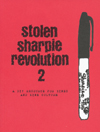 8. If you just need some stocking stuffers, small tokens of appreciation, gifts for coworkers or mail delivery people or friends who will feel bad if you buy them big presents, we have plenty of little mini gifts too! Celebrate People’s History Postcards (miniature reproductions of the popular posters) are always a hit. Stolen Sharpie Revolution is recently back in print in a new edition. Slingshot: 32 Postcards is a nice little collection of Eric Drooker’s work. And if you really want to stir things up at that holiday party there’s always The Coming Insurrection!
8. If you just need some stocking stuffers, small tokens of appreciation, gifts for coworkers or mail delivery people or friends who will feel bad if you buy them big presents, we have plenty of little mini gifts too! Celebrate People’s History Postcards (miniature reproductions of the popular posters) are always a hit. Stolen Sharpie Revolution is recently back in print in a new edition. Slingshot: 32 Postcards is a nice little collection of Eric Drooker’s work. And if you really want to stir things up at that holiday party there’s always The Coming Insurrection!
 9. It’s cold outside, even here in California. No better time for a new AK Press hoodie! Choose between the classic logo or the “pen and sword” design. We also have knit caps!
9. It’s cold outside, even here in California. No better time for a new AK Press hoodie! Choose between the classic logo or the “pen and sword” design. We also have knit caps!
10. Stumped? We do offer AK Press gift certificates in any denomination. If the amount you want isn’t listed on our website, just include it in the comments field when you place your order, or give us a call!
Posted on December 7th, 2009 in AK Distribution
 OK, brace yourself. It’s that time of year again. Santa and the Baby Jesus are stomping our way like an unholy, steroidal pro-wrestling team. We can either lock ourselves in our rooms until mid-January (without TV, radio, or Internet access) or we can suck it up and do our best to navigate the capitalist feeding frenzy in a way that doesn’t entirely turn our stomachs or violate our politics.
OK, brace yourself. It’s that time of year again. Santa and the Baby Jesus are stomping our way like an unholy, steroidal pro-wrestling team. We can either lock ourselves in our rooms until mid-January (without TV, radio, or Internet access) or we can suck it up and do our best to navigate the capitalist feeding frenzy in a way that doesn’t entirely turn our stomachs or violate our politics.
Enter AK Press. We won’t bullshit you: the holiday season is a big deal for us. In part because it’s when we sell a lot of stuff, pay our rent, pay the printing bills, and generally get our heads above water. And, in part, because it’s the time of year when we see our political labor of love reach many more people. Consumerist orgy? Revolutionary advance? Yeah, the contradiction makes our heads spin, too.
We’ll probably post a few gentle suggestions for holiday gift ideas over the next week or so, but today we want to highlight one in particular: the Friends of AK Press.
The Friends of AK Press is a subscription-based program in which folks donate a certain amount of money each month in order to a) receive every book AK Press publishes (which is generally about 20 per year) for free, b) get a 20% discount on everything we distribute (including books, CDs, DVDs, clothing…everything), and c) earn our undying gratitude.
The funds we receive from Friends of AK Press are our most dependable source of income. In the ebb and flow (mostly ebb) of today’s economy, “dependable” is a very nice thing. All the donations we receive go directly toward publishing projects, which means the radical ideas keep flowing. Here’s how it works:
Friends decide how much they’d like to donate per month. Given printing and shipping costs, the minimum is $25 ($30 for folks outside the US), You can choose an ongoing subscription, which means we bill your credit card for that amount each month until you tell us to stop, or choose a fixed time period: 3 months, 6 months, a year, etc. The minimum membership is 3 months. We really encourage people to get ongoing subscriptions (for more than the minimum amount, of course!), but that’s your call.
AK Press needs your support more than ever. And now there’s something extra in it for you…Join today, and tell your friends!
Sign up now, and you (or the lucky person you’re gifting) will get a stylish tote bag featuring the new Friends of AK logo, designed by Josh MacPhee! If you’re already a Friend, just refer someone else, and if they mention you when they sign up, you’ll both get a tote bag. And that’s not all: If you keep referring Friends after your first, you’ll get a $20 AK Press gift certificate for each additional new Friend you sign up. (Make sure your friends put your name in the comments field when they sign up, so that we know to send you your gifts.)
We’re running this special deal for a limited time–basically until we run out of tote bags–so do it now, do it often. As an added incentive, we’ll let you in on a little secret: Because we have some late books that are finally making their way to the printer, along with our regularly scheduled titles, the next few months will be a windfall for Friends of AK Press. Among the books that should see the light of day between now and February are:
- Come Hell or High Water: A Handbook on Collective Process Gone Awry, Richard Singer and Delfina Vannuci
- Signs of Change: Social Movement Cultures 1960s to Now, Dara Greenwald and Josh MacPhee
- Academic Repression: Reflections from the Academic-Industrial Complex, edited by Anthony J. Nocella II, Steven Best, and Peter McLaren
- Anarchism and Its Aspirations, Cindy Milstein
- Paradoxes of Utopia: Anarchist Culture and Politics in Buenos Aires, 1890-1910, Juan Suriano
- Sparking a Worldwide Energy Revolution: Social Struggles in the Transition to a Post-Petrol World, edited by Kolya Abramsky
- We Are an Image from the Future: The Greek Revolt of December 2008, edited by A.G. Schwarz and the Void Network
- Common Ground in a Liquid City: Essays in Defense of an Urban Future, Matt Hern
- War of the Worlds: How the Economy Was Lost, Paul Craig Roberts
Convinced? If so, go here to sign up yourself or a pal.
Many Thanks,
The AK Press Collective
Posted on December 4th, 2009 in AK Book Excerpts
The following is an announcement for a surprise book AK Press is releasing in February. This Sunday marks an anniversary but this revolt and its continued fallout is not history. Things are heating up in Greece already as we post. Read on to be inspired, educated, and motivated by the comrades in Greece.
—–
We Are an Image from the Future: The Greek Revolt of December 2008
edited by A.G. Schwarz, Tasos Sagris, and Void Network
In February 2010, AK Press will release a comprehensive book on the insurrection that occurred in Greece in December 2008 following the police assassination of 15-year-old Alexis Grigoropoulos, looking at its historical roots, its multiple forms and manifestations, and its continuing effects through the repression around the national elections in October, 2009. With dozens of photos, nearly forty original interviews with participants and observers of the revolt, and dozens of translated texts, articles, and communiqués from a variety of groups, We Are an Image from the Future explores the history of Greek social struggles and the anarchist space in particular, while trying to give multiple answers to the questions about where insurrections come from, what role do anarchists play, to what extent is the State able to repress them, what obstacles prevent insurrections from maturing into revolutions, and in what ways do they change society when they stop short of total revolution?
The editors of this book hope to simultaneously document an important moment in the history of anarchist struggles, to present the Greek anarchist movement in a historical context, and to advance anarchist theory, strategy, and understanding of society, the state, and global revolution.
We Are an Image from the Future includes interviews with:
-Anarchists and antiauthoritarians from Athens, Thessaloniki, Patras, and several villages and islands.
-Participants in the occupations of the Polytechnic University, and Athens School of Economics, the Athens Law University, the Genderal Confederation of Greek Workers, the office of the newspaper editors’ union, the Theater School in Thessaloniki, the National Opera Hall in Athens.
-Friends of Alexis Grigoropoulos and students of Exarchia high school.
-The Exarchia resident who filmed the murder of Alexis.
-The photojournalist fired for taking a picture of a cop drawing his gun a day after the murder of Alexis.
-A member of the antiauthoritarian base union of Konstantina Kuneva, a precarious immigrant worker brutally attacked in December for her syndicalist activities.
-Students, leftists, nonaffiliated people, conservative family members of anarchists, and random people in the street.
-A refugee organizing support for other refugees, and several immigrants who participated in the revolt.
-People who have been participating in the struggles since the ’70s and people who came out into the streets for the first time in December.
-Owners of luxury stores smashed by anarchists (including one interview in which an anarchist who had helped smash the store came back impersonating a journalist from a major international newspaper).
-Independent media activists and people involved in counterinformation.
-People involved in supporting prisoners.
-Some people involved in the occupation of the national television station.
-Anarchists organizing solidarity actions in other countries.
The book includes original translations and reprinted translations from over a dozen assemblies, groups, and initiatives, including prisoners, urban guerrilla groups, university and town hall occupations, feminist groups, immigrant groups, workers groups, etc. There are also several articles by the editors analyzing the role of the media, the internationalization of the struggle, the logic of not making demands, the results of the December revolt, the role of the working class, gender and anti-sexism in the movement, the strategy of armed guerrilla groups, and the meaning of violence for the anarchist struggle.
In commemoration of the one year anniversary of 6 December, in memory of Alexis and Tony and Mohamed and all the others, in memory of the prisoners of the struggle, we’re releasing several of the interviews from the book, so they can begin circulating now, before the book itself comes off the presses.
In solidarity and struggle,
A.G. Schwarz, Tasos Sagris, and Void Network
Here we present the following sampled interviews from the book
Alkis: December is a result of social and political processes going back many years
Argiris: Exarchia Square and the neighborhood assemblies
Lito: Suddenly I heard a bang
Andreas: We started with three hundred people, and came back with five hundred
Daredevil: We intervene in the daily flow of things to interrupt it
A.G. Schwarz: The Media Try to Kill Memory
Void Network: December Revisited
(more…)
 Minor Compositions: Minor Compositions is a research – theorizing – publishing project that is located, at the moment, within the London metropolitan basin of collective intelligence. Its main aim is to bring together, develop, and mutate forms of autonomist thought and practice, avant-garde aesthetics, and an everyday approach to politics. To take up a useful distinction made by Alan Toner, this is to see not from a position of ‘producer consciousness’ (“we’re a publisher, we make books”) but rather from a position of protagonist consciousness (“we make books because it is part of participating in social movement and struggle”). So the production of a text is not something that is thought in isolation but how it connects and develops moments of thinking collectively. This draws a good deal of inspiration from the autonomist notion of militant research and workers’ inquiry, expanding it beyond inquiry into particular bounded workplaces into a more general investigation of cultural labor, social reproduction, and the relationship between antagonistic energies and attempts to govern them.
Minor Compositions: Minor Compositions is a research – theorizing – publishing project that is located, at the moment, within the London metropolitan basin of collective intelligence. Its main aim is to bring together, develop, and mutate forms of autonomist thought and practice, avant-garde aesthetics, and an everyday approach to politics. To take up a useful distinction made by Alan Toner, this is to see not from a position of ‘producer consciousness’ (“we’re a publisher, we make books”) but rather from a position of protagonist consciousness (“we make books because it is part of participating in social movement and struggle”). So the production of a text is not something that is thought in isolation but how it connects and develops moments of thinking collectively. This draws a good deal of inspiration from the autonomist notion of militant research and workers’ inquiry, expanding it beyond inquiry into particular bounded workplaces into a more general investigation of cultural labor, social reproduction, and the relationship between antagonistic energies and attempts to govern them.
 So while my personal considerations for being the Santa Claus that delivers switchblades and condoms with teeth for Christmas are made in jest, the sentiment behind these gifts is a conversation that all of us need to be taking seriously. For all my tough-as-nails mujeres and queer comrades, I want you to consider how to combat gendered and sexualized violence before it happens, in the moment, and after the fact, both as individuals and as community. And for those of you who would consider committing an act of violence toward one of our brothers and sisters, just know that the person you are attacking might stick you in the side before the fight is over, courtesy of the bearded woman in the red suit handing out switchblades.
So while my personal considerations for being the Santa Claus that delivers switchblades and condoms with teeth for Christmas are made in jest, the sentiment behind these gifts is a conversation that all of us need to be taking seriously. For all my tough-as-nails mujeres and queer comrades, I want you to consider how to combat gendered and sexualized violence before it happens, in the moment, and after the fact, both as individuals and as community. And for those of you who would consider committing an act of violence toward one of our brothers and sisters, just know that the person you are attacking might stick you in the side before the fight is over, courtesy of the bearded woman in the red suit handing out switchblades. As a group of unaffiliated, but growing community of queer people of color and allies based out of Oakland, California, we are sadly all too familiar with the type of violence that was inflicted upon these two young bodies. We ourselves are also various combinations of queer and trans and poor and colored and young and many of the other things that singled out Jorge and Jason as vulnerable and dispensable targets. And because we dare not only to survive in this world as all of these things, but also to thrive as and accentuate these identities, we also become potential targets of this type of transphobic/homophobic violence. So today, on this day, we stand together not only to mourn the loss of Jorge and Jason, but we also stand in solidarity with communities in Puerto Rico, Baltimore, and other parts of the world who are every day resisting the type of hateful violence that ripped away young Jorge and Jason from their loved ones. Although our hearts are heavy and our souls full of grief, our spirit is not broken and we must continue to move forward, as our ancestors and elders have done before us and as our young people and descendents will continue to do long after we are gone.
As a group of unaffiliated, but growing community of queer people of color and allies based out of Oakland, California, we are sadly all too familiar with the type of violence that was inflicted upon these two young bodies. We ourselves are also various combinations of queer and trans and poor and colored and young and many of the other things that singled out Jorge and Jason as vulnerable and dispensable targets. And because we dare not only to survive in this world as all of these things, but also to thrive as and accentuate these identities, we also become potential targets of this type of transphobic/homophobic violence. So today, on this day, we stand together not only to mourn the loss of Jorge and Jason, but we also stand in solidarity with communities in Puerto Rico, Baltimore, and other parts of the world who are every day resisting the type of hateful violence that ripped away young Jorge and Jason from their loved ones. Although our hearts are heavy and our souls full of grief, our spirit is not broken and we must continue to move forward, as our ancestors and elders have done before us and as our young people and descendents will continue to do long after we are gone. We come back to the question of justice not because we here in Oakland have devised some ultra sophisticated, fool-proof method for obtaining justice when violent crimes are committed against us, but because it is a question that we are also struggling to answer ourselves. One thing we do know for sure, we feel that we cannot, nor were we ever meant to, rely on the criminal justice system to keep us safe, especially given the reality that it is this same system that is invested in feeding the hateful attitudes that lead to the murders of Jorge and Jason in the first place.
We come back to the question of justice not because we here in Oakland have devised some ultra sophisticated, fool-proof method for obtaining justice when violent crimes are committed against us, but because it is a question that we are also struggling to answer ourselves. One thing we do know for sure, we feel that we cannot, nor were we ever meant to, rely on the criminal justice system to keep us safe, especially given the reality that it is this same system that is invested in feeding the hateful attitudes that lead to the murders of Jorge and Jason in the first place.






 We are happy to announce another new book from Black Cat Press.
We are happy to announce another new book from Black Cat Press.  Preface
Preface PART ONE Revolutionary Syndicalism
PART ONE Revolutionary Syndicalism


 The vendors loaded the goods on wagons, but when it came time to settle up and they saw that their goods were being requisitioned, they complained bitterly. Their protest relied on the insecurity of the Bolshevik-Left SR government in this region. At the time there were hundreds of White Guard units operating in the area and the population silently supported them. Reacting to this protest of the vendors, the Red authorities panicked. They ordered the Tikhoretskayaya garrison to cordon off the echelon of the artillery base and not allow it to continue on its way without special authorization.
The vendors loaded the goods on wagons, but when it came time to settle up and they saw that their goods were being requisitioned, they complained bitterly. Their protest relied on the insecurity of the Bolshevik-Left SR government in this region. At the time there were hundreds of White Guard units operating in the area and the population silently supported them. Reacting to this protest of the vendors, the Red authorities panicked. They ordered the Tikhoretskayaya garrison to cordon off the echelon of the artillery base and not allow it to continue on its way without special authorization.








